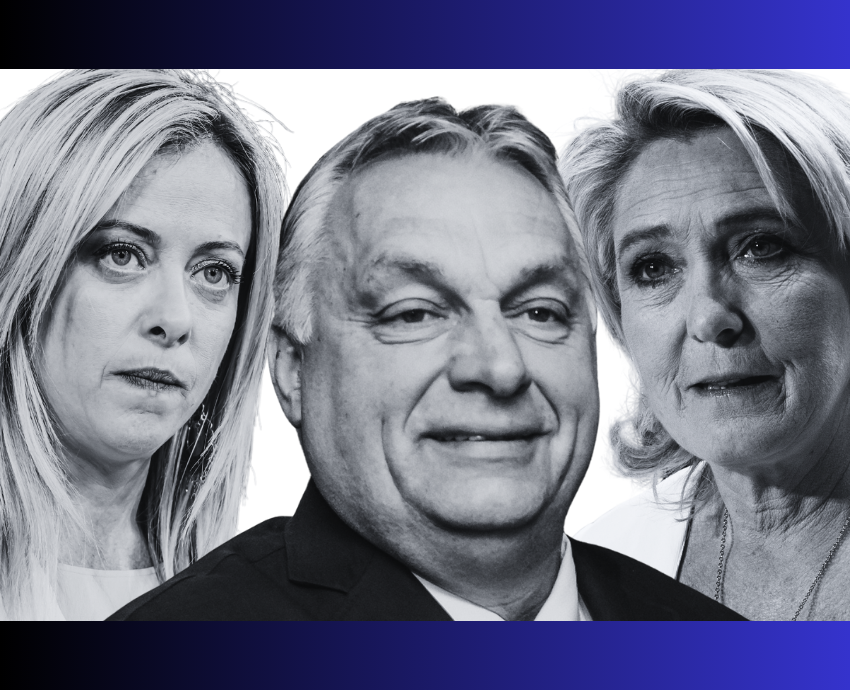
Pablo Stefanoni is a journalist, editor and author of Has Rebellion Become a Thing of the Right?. Green Left’s Federico Fuentes spoke to him about the far right’s success in the recent European elections.
* * *
After the June European parliament elections, there was talk of a far-right wave. How do you explain this vote?
Evidently, the far right has been steadily growing in Europe and is setting the national political agenda in several countries.
The far right is stronger than before and, above all, has achieved normalisation. However, it has not yet managed to break the hegemony of conservatives and social democrats in the European Parliament, who held onto their majority.
This is occurring within the context of a very fragmented electoral landscape and a strong mood of rejection towards traditional politicians.
Even the slightly more institutionalised far right has had to deal with the emergence of new and more disruptive forces competing for their votes, such as The Party’s Over in Spain, Oath and Motorists in the Czech Republic and Confederation of Freedom and Independence in Poland.
But it is not all one way traffic. In the Nordic countries — Sweden, Finland, Denmark — the far right went backwards while the left did well, including forces to the left of social democracy.
In Spain, a progressive coalition led by the Spanish Socialist Workers' Party (PSOE) remains in power, and in Britain the Conservatives collapsed [in the recent general elections].
Meanwhile, the French situation is complex: Marine Le Pen's party, National Rally (NR), won the most votes [in the parliamentary elections], though the “Republican front” [formed between the broad left New Popular Front (NFP) and Prime Minister Emmanuel Macron’s centre-right Together coalition] ensured it came third in terms of deputies.
There has been a reorganisation of the radical right in the European Parliament. What are the main dividing lines between the different groups? Why has complete support for Israel and opposition to antisemitism become such important banners for the radical right, given its traditional association with antisemitism?
Various realignments within the far right have occurred in the European Parliament after the elections, though things have not changed as much as it seems.
The Identity and Democracy bloc shifted almost en bloc to Patriots for Europe, which is led by [Hungarian Prime Minister] Viktor Orbán and Le Pen. It represents a more pro-Russian sector.
Surprisingly, they have incorporated the Spanish party Vox (Voice), which until now had been very close to [Italian Prime Minister Giorgia] Meloni [and her party, Brothers of Italy]. Vox’s support has stagnated in recent months and it is unclear whether this realignment at the European level reflects internal differences.
Meanwhile, AfD created a group with its allies: Europe of Sovereign Nations.
Without doubt, relations with Russia, especially in the context of the invasion of Ukraine, is a point of tension (the Visegrad group — Slovakia, Hungary, Poland and the Czech Republic — has seen itself caught up in this conflict).
Relations with the European People’s Party (EPP) — the Christian Democrat/conservative right — is another source of divergence. The European Conservatives and Reformists Party (ECR), another radical right-wing group in the European Parliament [co-led by Meloni’s Brothers of Italy], is closer to the EPP.
Antisemitism is indeed a key issue because “anti-antisemitism” is one avenue through which the far right has sought normalisation. There are several overlapping issues here.
One is the far right having replaced Jews with Arab Muslims as their target of discrimination, together with the fact that Jews have gone from being the “other” in the West to becoming the core of a “Judeo-Christian” West.
Moreover, the fact Israel is governed by the far right, with its own radical ethno-nationalist positions, means there are many points of commonality between European and Israeli ultrarightists.
There is an important point to make here: indiscriminate accusations of antisemitism — often simply over criticism of Israel and the massacre in Gaza — are an obscene and dishonest manipulation and trivialisation of antisemitism, including when they come from official Jewish organisations.
[Edited and abridged from a much longer interview at links.org.au.]